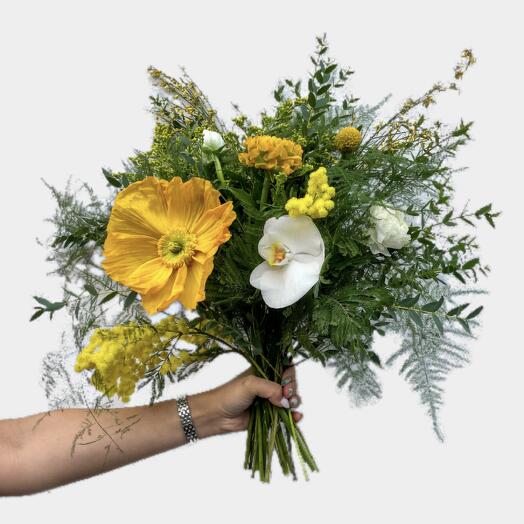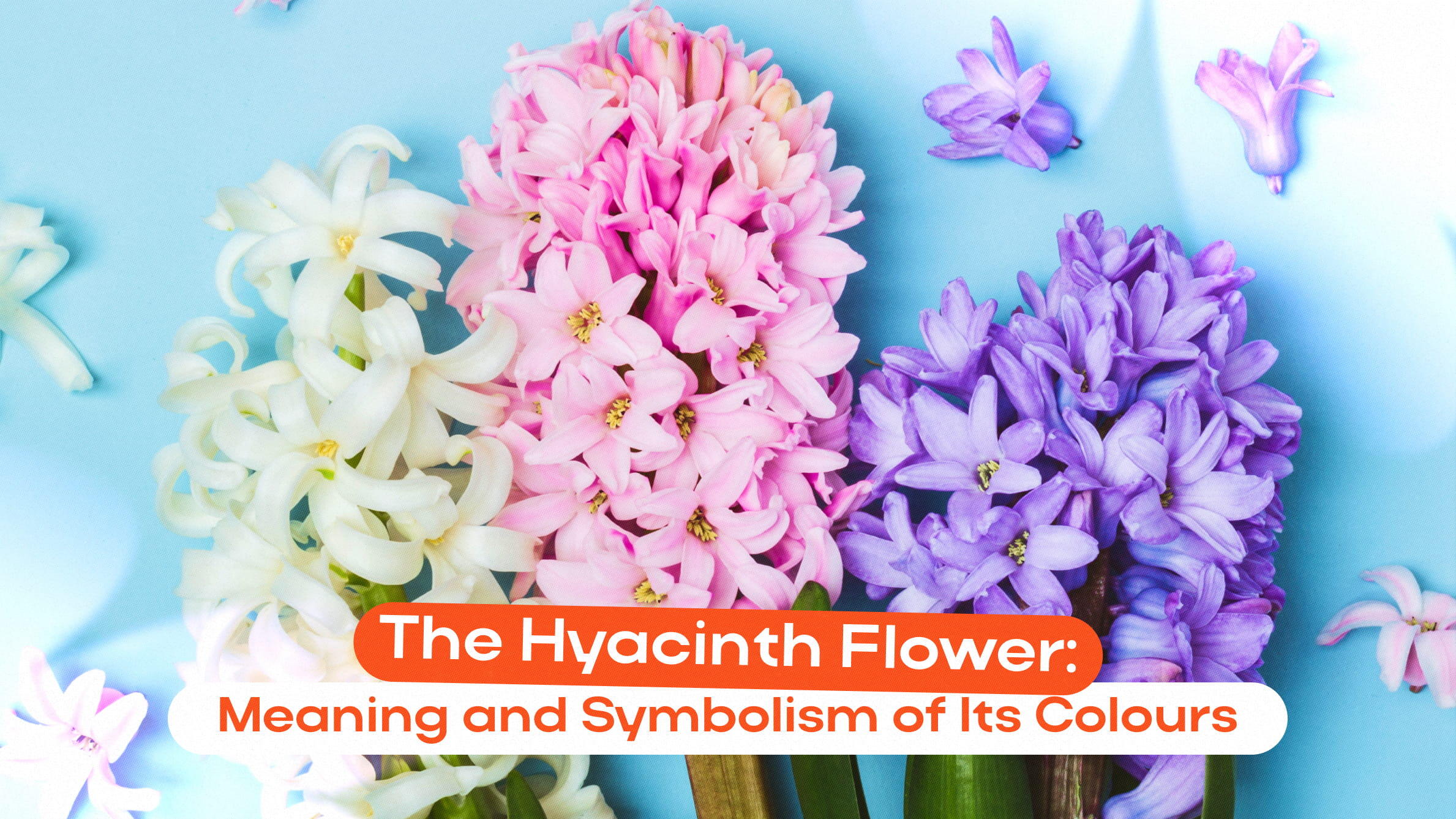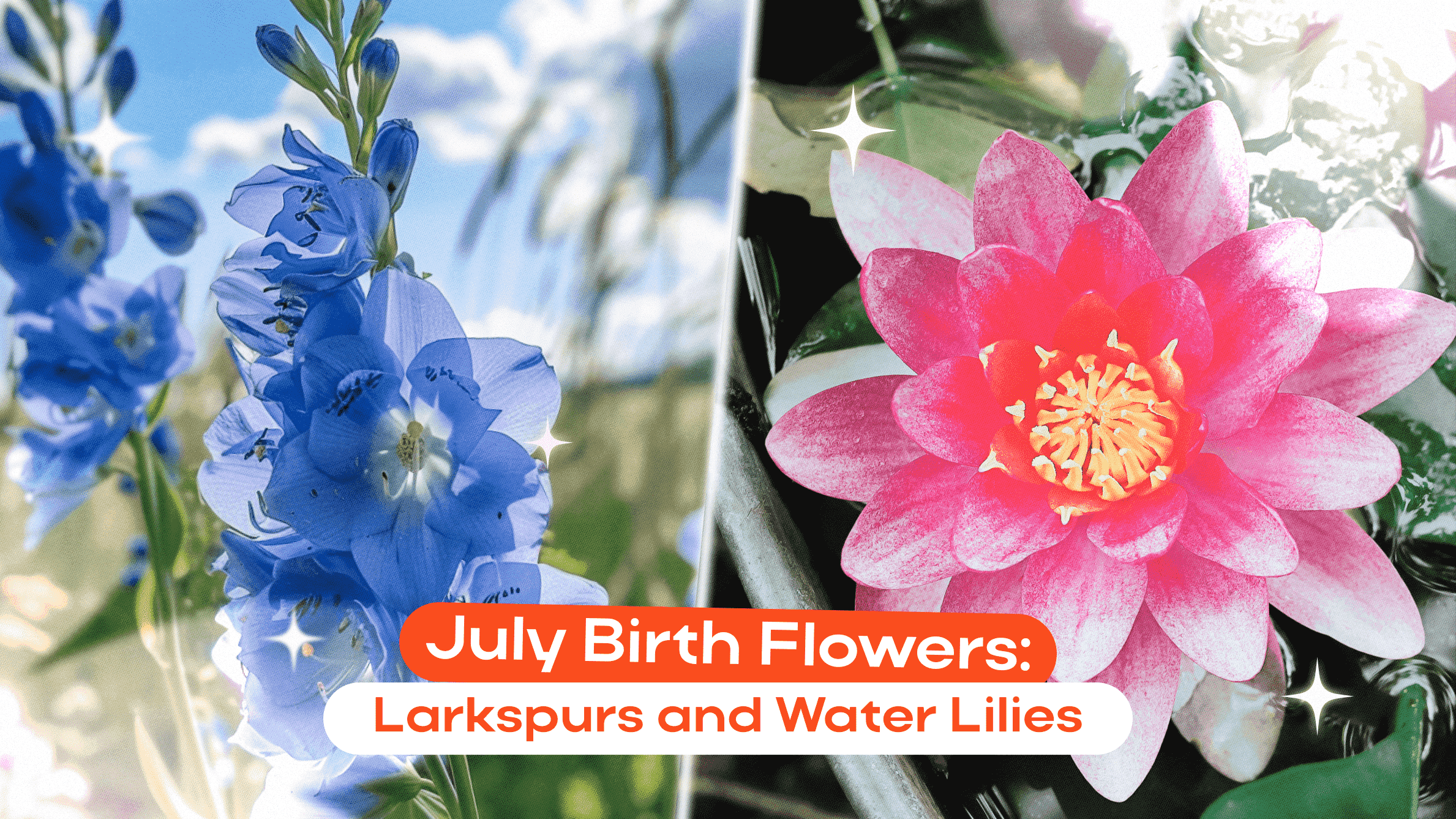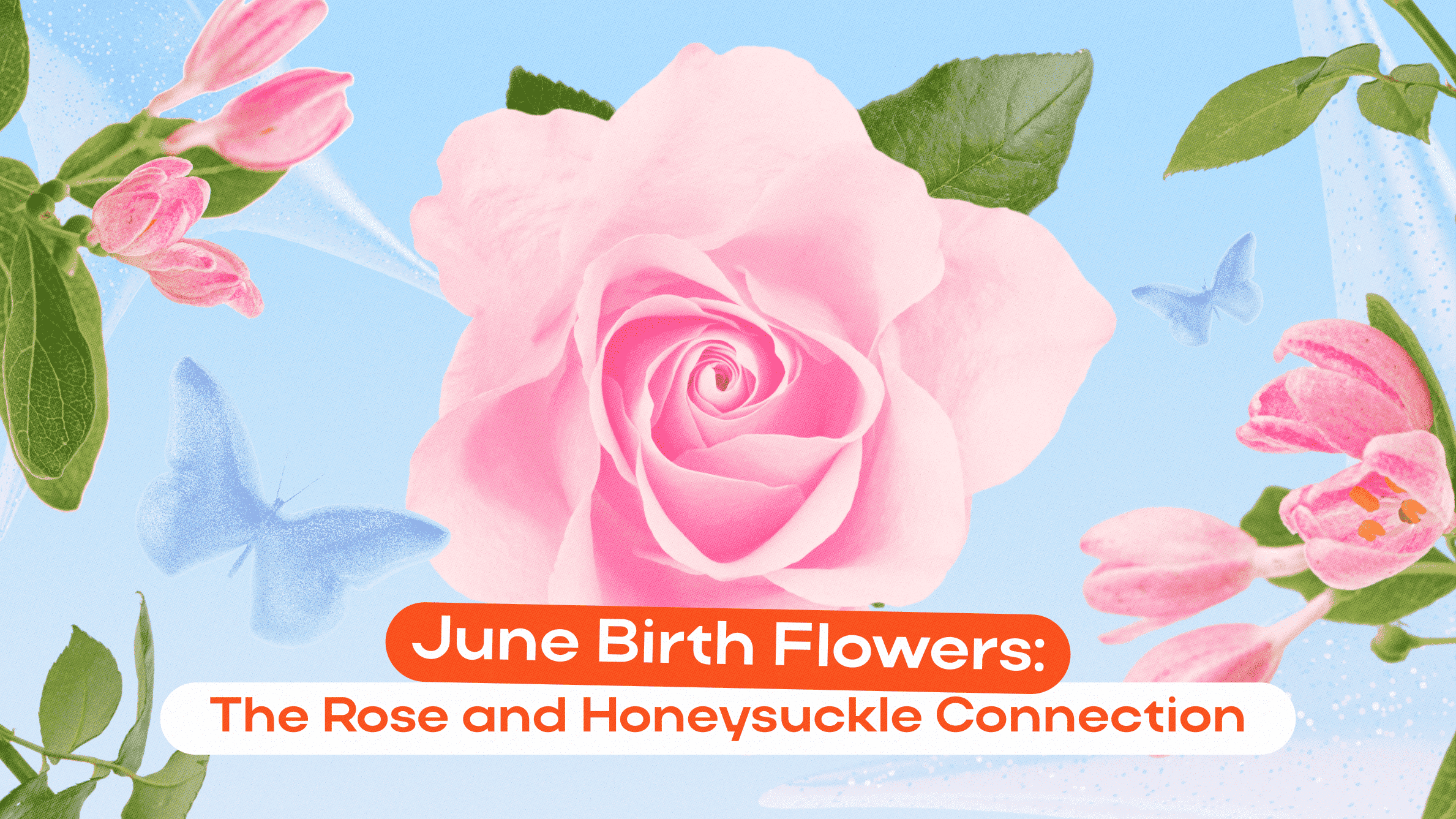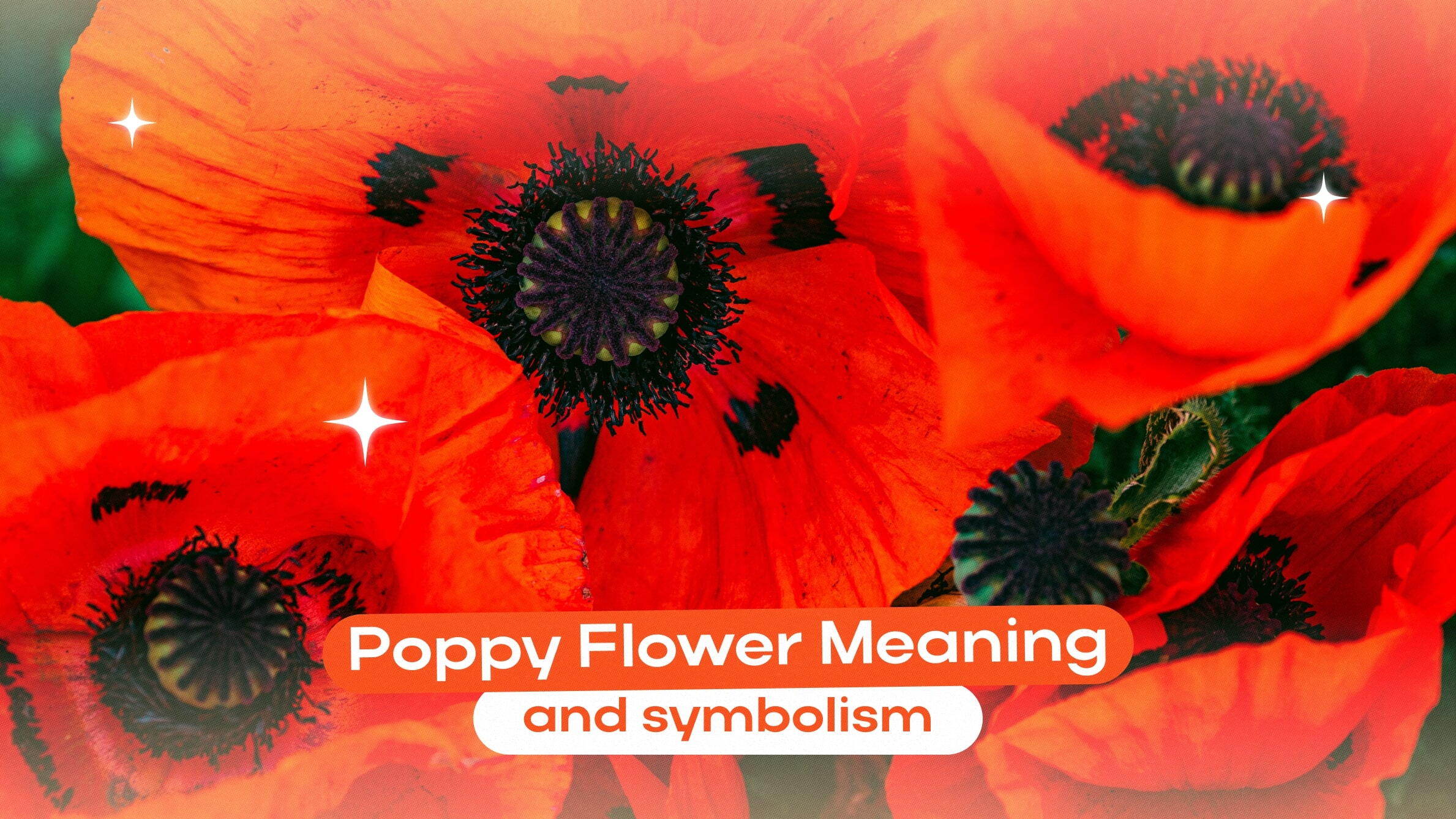
Is there a more complicated and meaningful flower than the poppy? Recognised across various cultures and historical contexts for its charming beauty, this bloom has both positive and sorrowful connotations. However, we’re more than certain that you’ve never heard of green or black poppies! What to learn more about them? Let’s dive into their significance and the variations of colours produced by these flowers.

Poppy Flower Meaning and Symbolism

Delicate yet vibrant, the poppy is probably the most well-known symbol of remembrance during trying times. Even in antiquity, it represented the fragility of life and an enduring spirit. Today, this flower denotes peace, sorrow, and the interconnectedness of all living beings.
Historical Significance of Poppy Flowers
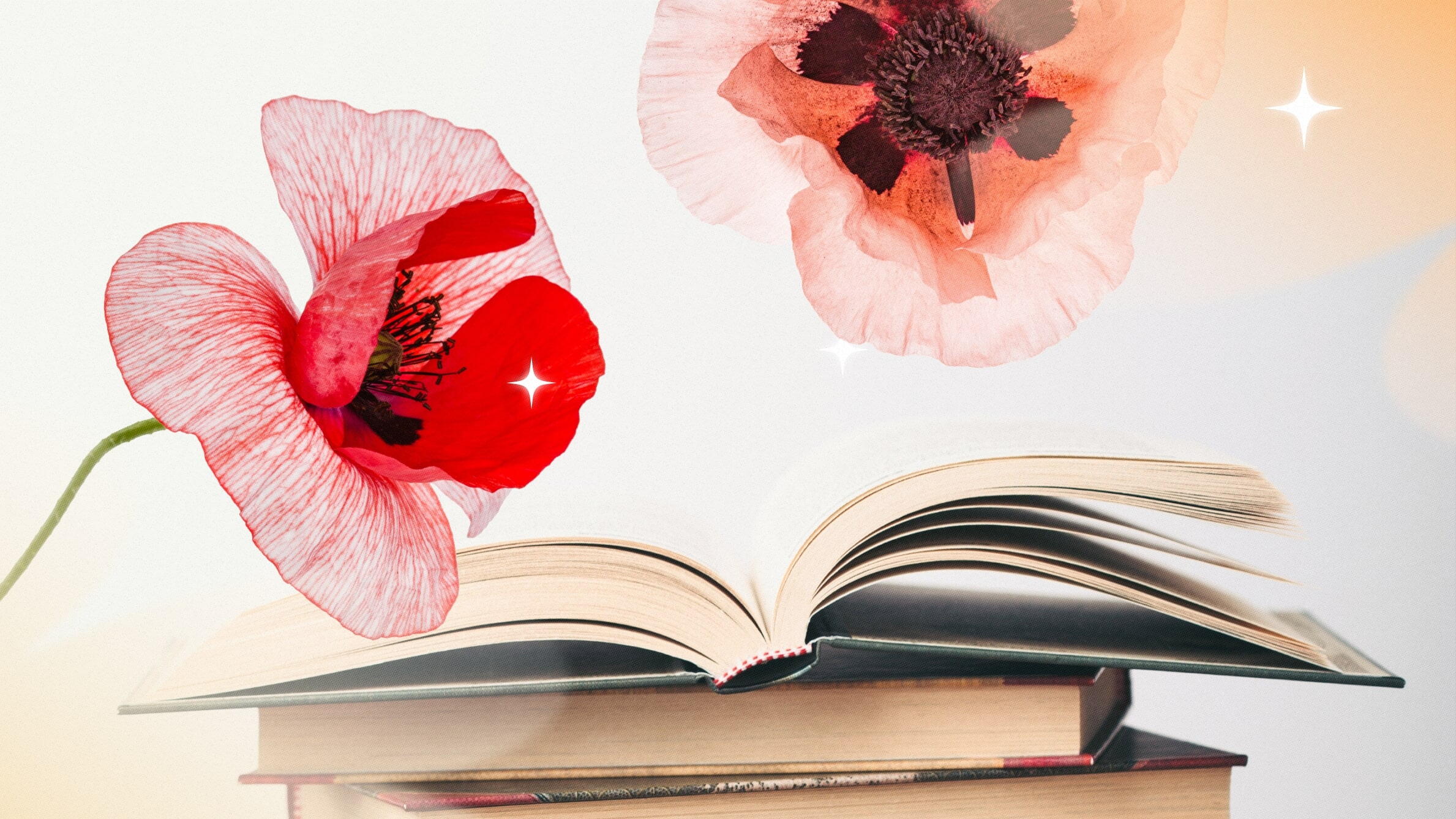
Throughout the ages, these blooms’ medicinal properties were very popular but their symbolic value was also highly cherished. Some ancient civilisations, such as the Greeks and Egyptians, saw poppies as tokens of eternal sleep and inevitable rebirth; this connotation was later borrowed by other cultures and persists to this day.
What Does the Poppy Flower Mean in the UK
What is Poppy Day in England
In the UK, this bloom holds the same meaning of peace and reconciliation, but it becomes particularly popular around Remembrance Day, celebrated annually on November 11th to commemorate the end of World War I. Also referred to as Poppy Day, this event is the perfect time for red poppies.
Poppy Colors Meaning
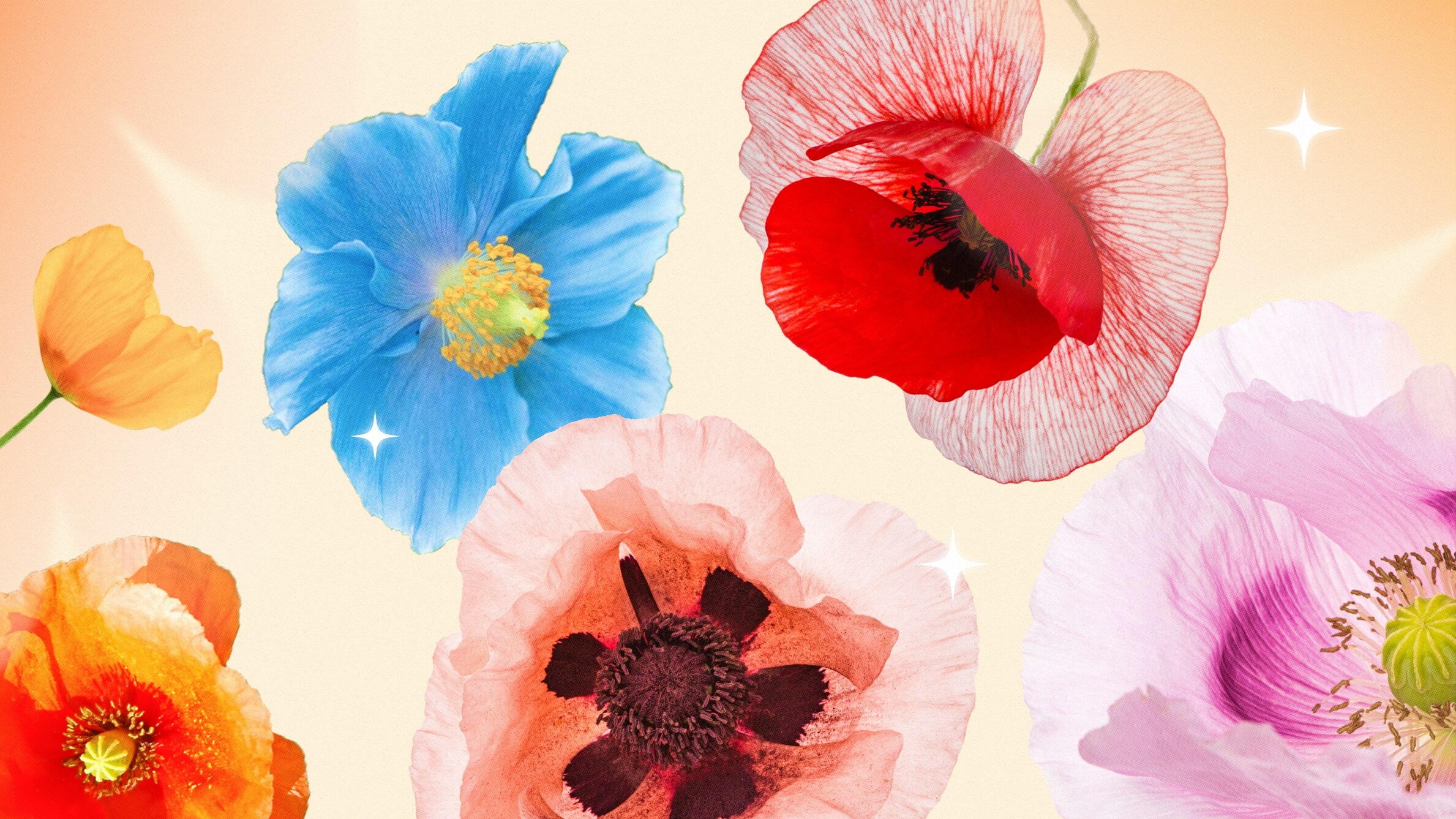
Red Poppy Meaning
The red poppy is an ever-lasting token of honour, chosen in recognition of those who have sacrificed themselves during wartime. This flower can be presented in a bouquet on Remembrance Day or Memorial Day ceremonies.
Purple Poppy Meaning
Purple poppies honour the lives of animals lost in wars, particularly horses that played a crucial role in the military efforts and helped people with a wide variety of tasks.
Black Poppy Meaning
Black poppies denote the contributions of the African, Caribbean, and Indigenous soldiers, who participated in countless armed conflicts. These flowers are closely tied to the loss of lives among these marginalised communities.
Blue Poppy Meaning
Blue poppies are one of the few varieties that don’t have a connection to mourning or armed conflicts. Highly rare and exotic, they represent imagination, creativity, and the pursuit of dreams. A bouquet of blue poppies is a flawless choice for someone embarking on a new creative endeavour.
Yellow Poppy Meaning
Yellow poppies convey messages of success and prosperity. Typically, they help express optimism for the future or good wishes towards one’s future. A bouquet of yellow poppies is perfectly suitable for celebrating important milestones, such as graduations or promotions.

White Poppy Flower Meaning
White poppies are the emblem of pacifism and the desire for peace. They represent anti-war movements and efforts to promote harmony and reconciliation. Another connotation is tied to honouring all of the victims of wars, both civilian and military.
Green and Pink Poppy Meaning
Green and pink poppies exemplify growth and new beginnings. They symbolise hope and resilience in the face of adversity. These colours are ideal for showing your care towards someone during challenging times – or congratulating them on the start of a new chapter in life.
Orange Poppy Meaning
Orange poppies symbolize energy, enthusiasm, and excitement. They represent the vibrant spirit of life and the joy of living in the present moment. A bouquet of orange poppies can be given to uplift someone's mood or celebrate a joyful occasion like a birthday or wedding.
Poppy Flower Spiritual Meaning
In spiritual contexts, these blooms represent the cycles of life and the journey the soul completes to achieve spiritual or religious enlightenment.
The Cultural Significance of Poppy Flowers
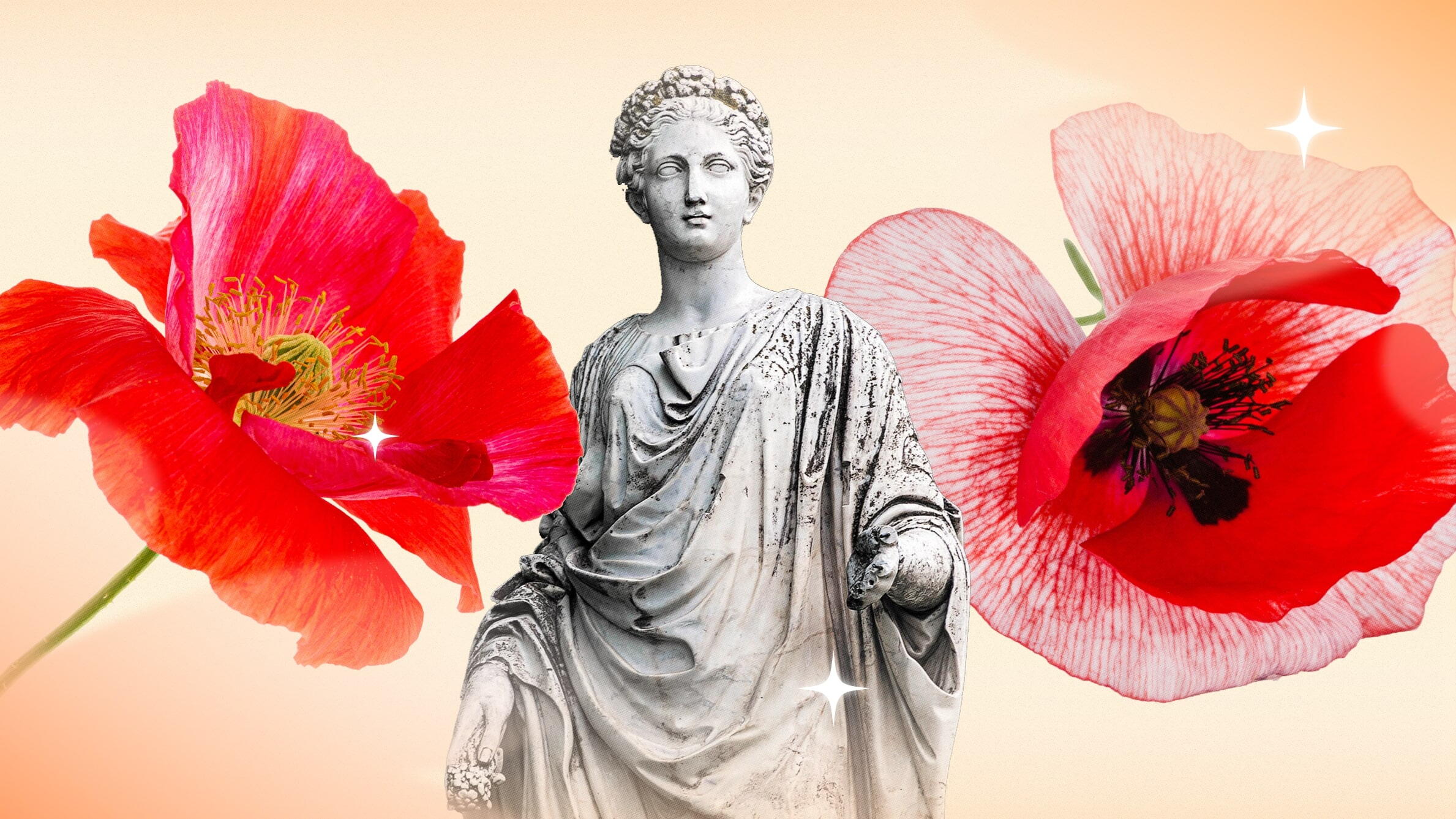
Poppy Flower in Greek Mythology
In Greek mythology, these blooms were the emblem of Demeter, the goddess who provided fertility for the earth and looked over farmers. She is often depicted holding two poppies in her hands, gracing the world with her presence.
Poppy Flower in Ancient Egypt
The Ancient Egyptians also associated these flowers with fertility, but they gave them the alternative meaning of resurrection. Because of this, poppy seeds were frequently used during religious ceremonies and rituals and even placed in graves and tombs.
Poppy Flower in Christianity
In Christian symbolism, these blooms are the emblem of the blood of Christ, honouring the sacrifice he made for humanity. They remind us about the importance of redemption and salvation as well as the necessity to be connected to the divine.
When to Give Poppy Flowers

These blooms are often given as gifts to commemorate loved ones, particularly those involved in the military or armed conflicts. They can also be held during remembrance marches or placed on memorials or graves. However, when it comes to blue, yellow, green, pink, and orange poppies, bouquets with them can be presented during happy and celebratory occasions, including birthdays and friendly gatherings – or even without any reason at all.
Facts About Poppy Flower
- It is native to Europe, Asia, and North Africa.
- It was chosen to represent Remembrance Day because poppies appeared in large numbers on the battlefields of World War I.
- The opium poppy (Papaver somniferum) is the raw material used for the eponymous narcotic as well as morphine, and it is still cultivated across the world.

